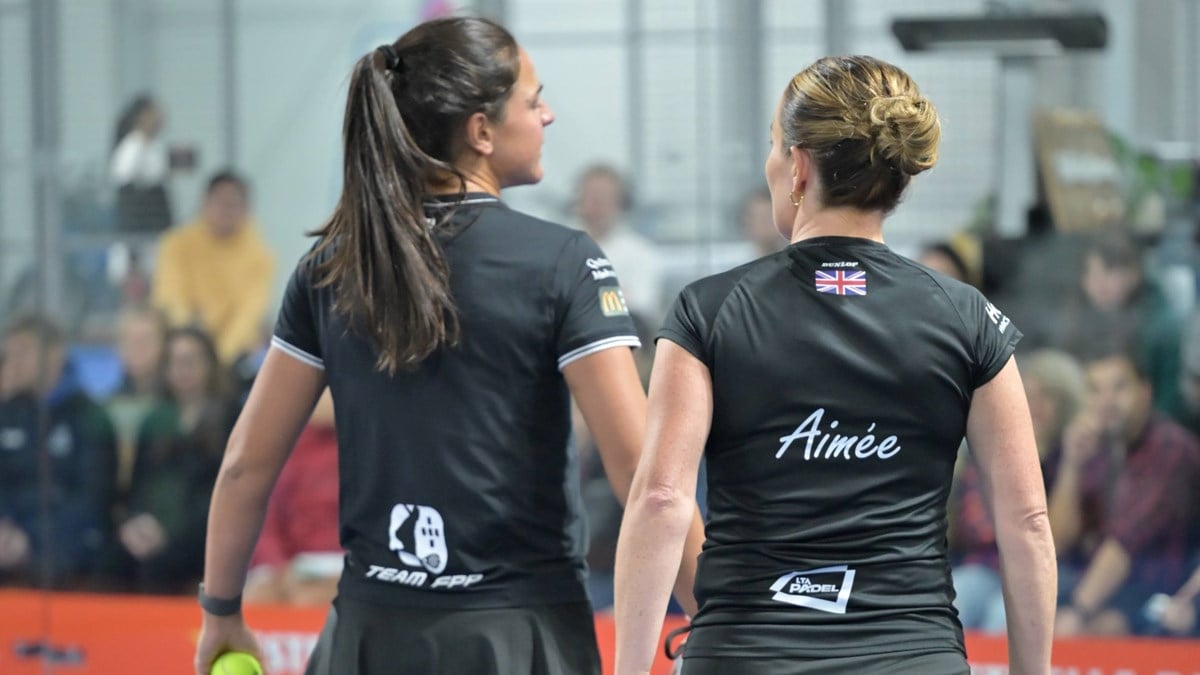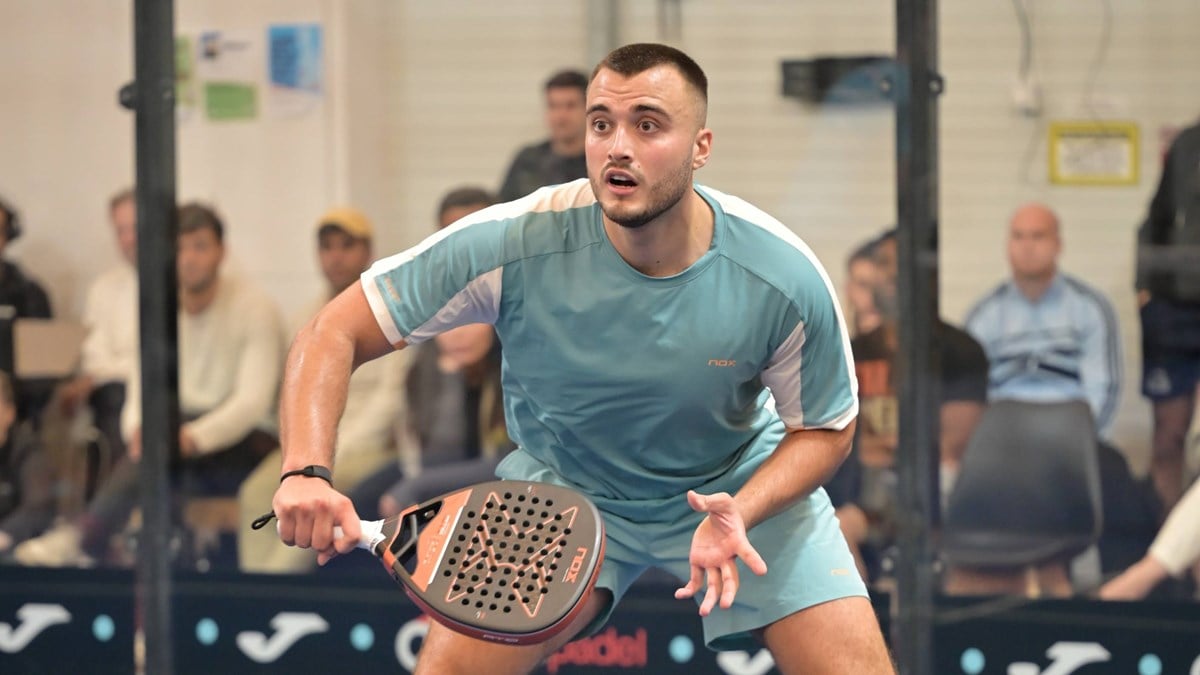
Running international padel tournaments: Behind-the-scenes at Stratford Padel Club
As the world's professional padel players were locked in battle at the recent FIP Silver R3 Bullpadel Cup at Stratford Padel Club, there was a team working just as hard outside the glass, keeping the cogs of international competition turning.
Hosting a men's and women's event with 32 pairs in both draws, as well as the FIP Promises R3 Junior Cup for U14 and U18s simultaneously, across eight courts over six days, required rigorous planning, endless decision-making, problem solving, teamwork, hard graft, long days and not a great deal of sleep.
Before this year, Britain had never hosted a padel tournament of this calibre. The Stratford event was only the second at FIP Silver level ever to take place on these shores.
As part of our Padel Performance Competitions Calendar, the FIP Tour and LTA Padel British Tour offer valuable opportunities for British players at all levels of the performance pathway, providing players the chance to earn ranking points and prize money on home soil.
This year, Britain has hosted four FIP-level events, nine LTA British Tour Grade 1s, 15 Grade 2s, three FIP Promises tournaments (international junior competitions) and the LTA Padel National Championships set for December.
Having opened in December 2018, Stratford Padel Club is one of Britain's most established padel venues and its staff are well-rehearsed in hosting high-entry competitions at all levels.
The planning stage
The R3 Bullpadel Cup as a concept began almost a year in advance when Stratford submitted its application to host the tournament. Once approved, the club's Business Development Manager, Sam Mole, and Operations Manager, Denise Negro, arranged to outsource the delivery of the event with Sam Kemp, R3's MD of Operations, Tournament and Events, and the two met to start thrashing out the details.
Appointing tournament directors, referees, physio, masseur, players liaison and other key staff; budgeting, sorting communications, designing banners, t-shirts and goody bags, arranging accommodation, liaising with FIP, applying for LTA prize money, attracting sponsors and partners and many more tasks besides are allocated.

Hosting a FIP Silver brings with it certain stipulations from the world governing body. "We were told we must have an umpire's chair for the final," explains Mole, who was co-Tournament Director with Kemp.
"That was an example of so many smaller things that we had to sort out as the tournament drew nearer. Luckily, we managed to borrow one from Leigh Valley Tennis Centre. It's all these kinds of things that give you decisions to make constantly."
The build-up
With domestic LTA tournaments, a tournament referee makes and publishes the draw, and control of entries, player payments and withdrawals is handled in advance by the host venue.
But in FIP events, the governing body takes full control of the mechanics of the competition centrally and, in this case, the draws weren't made until late.
This left Stratford's key staff handling many questions from players, parents, staff and partners to which they didn't know the answers until the very last minute. With just a hint of understatement, Mole confesses this made the final few days before the tournament "very tricky."
One example of the type of unforeseen problem which can cause last-minute panic arrived just 24 hours before the tournament began. Operations Manager Denise Negro had received an email stating that the banners had arrived, but no-one could find them anywhere.
"After making enquiries, it turned out the printing company had actually delivered them from their warehouse to their own office address!" she says, thankfully able to laugh about it after the event. They were swiftly retrieved just in time.
Denise also realised late in the day that the club only had one net cover. She contacted a supplier who delivered some the next day, so all the courts had matching branded nets.
"We are becoming really good at solving problems," reflects Denise. "As you gain experience, you build more connections, so you know all the people and companies that can help you out at the last minute. This is the thing that a new club hosting their first tournament might not have."
The day arrives
In advance of day one, Denise created a Trello board with tasks and timelines for each staff member.
Denise explains: "I'll give the front desk staff a Q&A list so they can answer the typical questions we get from players without having to call me every 10 seconds. Once the event begins, a lot of mine and Sam's time is spent dealing with things that come up on the day and networking. We are the face of the event and people want to connect and have a chat.

"We all did really long days, but we made sure there was shared responsibility. We delegated tasks aligned with people's strengths, such as helping the Padel TV crew set up, social media, and the registration desk."
Sam added: "The bars are non-stop and you're doing constant rounds of the club to neaten chairs and tables, empty bins, check the toilets, stock fridges, clean the glass...
"We're blessed to have an amazing team who do those tasks as well as maintenance and cleaning staff working through the night. They're the people who no-one really sees."
A smoothly run tournament
Barring one or two tardy finishes, the R3 Bullpadel Cup ran without any major hitches — but that's not always the case.
In the men's semi-final of a large tournament at Stratford last year, a player dived to retrieve a low ball near the back of the court, collided with the glass and the whole pane shattered. He was shaken up, bruised and although not seriously hurt, had to retire from the match.
"All of a sudden you have to organise a clean-up operation," says Sam. "The pane was replaced very quickly — you could've walked in here half an hour later and you'd never have known that it happened.
"Anything can happen and that's why I'm so grateful that we've got such an amazing team. It feels like we have solutions for almost anything that might crop up. Nothing surprises us any more!"





